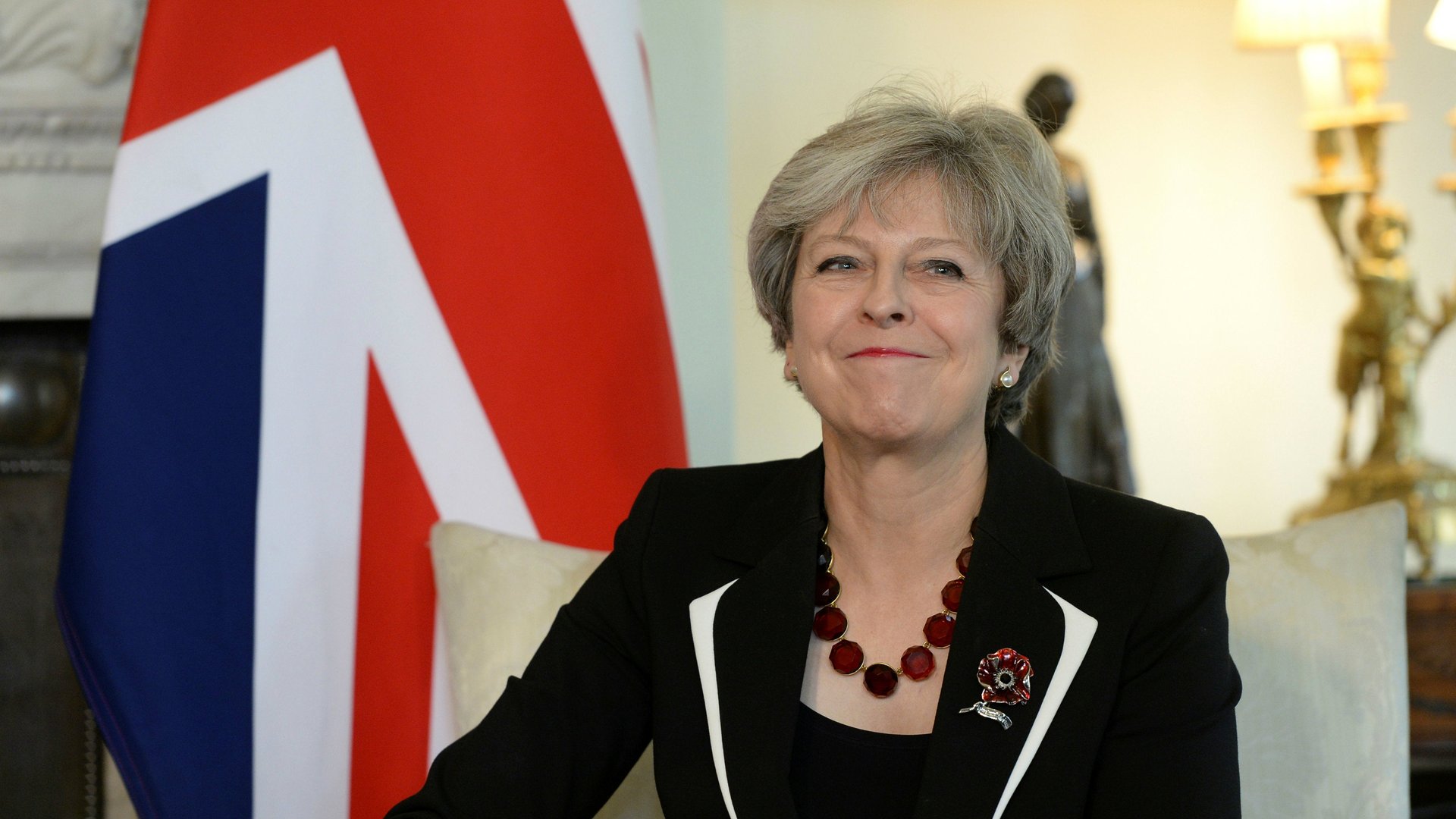Britain’s decisions in the next few weeks will determine the fate of Brexit talks
Britain is about to embark on a sixth round of Brexit talks with the European Union. The two sides have yet to agree on three key issues that allow negotiations to progress to the next stage—the divorce bill, the rights of EU citizens in the UK, and what to do about the Northern Ireland border.


Britain is about to embark on a sixth round of Brexit talks with the European Union. The two sides have yet to agree on three key issues that allow negotiations to progress to the next stage—the divorce bill, the rights of EU citizens in the UK, and what to do about the Northern Ireland border.
An agreement on the divorce bill amount, in particular, will give a good indication on how talks are likely to pan out. Settling that payment, as well as the other two “withdrawal issues,” will allow the two parties to move on to substantive matters of trade and immigration post-Brexit.
There is no specific sum that the EU is demanding. However, European Commission president Jean-Claude Juncker previously suggested €60 billion ($70 billion). So far, the UK has offered a fraction of that. The payment is intended to settle what the UK owes the EU under long-term obligations it made towards a shared budget and infrastructure projects when it was a member.
Liam Fox, Britain’s international trade minister claimed the UK “can’t be blackmailed” with a steep price to leave the EU, while the EU’s chief Brexit negotiator Michel Barnier has expressed frustration that the UK doesn’t seem to feel “legally obliged to honor its obligations.”
It looks like things may be about to change. Reports say that UK prime minister Theresa May is willing to increase the amount Britain will pay (paywall). The EU is apparently pushing Britain to settle the bill within weeks. If Brussels can get Britain to pay up, as well as make progress on other sticking points, by remaining resolute and setting deadlines, it will show, a year and half after the Brexit referendum, that in the end the UK’s bark is worse than its bite.
It will also reveal how far Britain is willing to bend in order to retain preferential trade access to the EU’s market. This, most notably, will test its resolve to take total control over immigration. The EU has repeatedly said that if Britain wants a trade arrangement similar to what it had as a member of the bloc, it must allow the free movement of EU citizens across its borders, too. With immigration among the most common factors cited by voters who cast their ballots for Brexit, this is yet another tricky balancing act facing the British government.